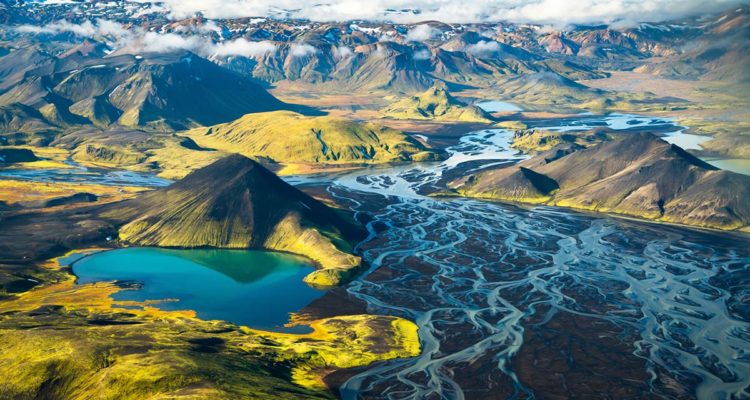If an alien came to Earth and wanted to know what the deal is with all these big, wet things crisscrossing the land, then Jennifer Peedom’s new documentary “River” would surely be of assistance. Its seventy-four minutes float by with the hazy ambiance that compels critics to dust off the time-honored descriptor of “tone poem,” the camera content to gaze at the magnificence of the natural world. When Peedom does deign to give shape to her footage, however, the results are uninformative and obvious to anyone who has ever stepped foot outdoors. Like a grade-schooler using florid language to obscure the fact that they didn’t read the book they’re giving a report on, the voiceover narration (delivered with utter conviction by Willem Dafoe) cloaks its non-insights in an ostentatious tone. There’s more than a hint of “Libya is a land of contrasts” to the substance-lite purple prose filling out the sparse script.
READ MORE: Telluride 2021 Preview: 10 Must-See Films To Watch
“Humans have long loved rivers,” we’re told. “But as we have learned to harness their power, have we also forgotten to revere them?” A couple of decades after “An Inconvenient Truth” and the dozens-to-hundreds of environmental advocacy docs following in its wake, Peedom has arrived to warn us that this whole “climate change” thing may be a serious issue. But she doesn’t want to bore us with data or cogently argued calls to action; she prefers a vague sort of lamentation never more pointed than dams being bad. This is because they halt the movement and distribution of sediment on the river floor, one of the more edifying lessons imparted by the film. And yet the waxing-rhapsodical voiceover also muses that “dams make miracles possible,” so who’s to say where we should stand? In any case, the time-lapse shots of drying riverbeds don’t seem like positive news.
READ MORE: Fall 2021 Movie Preview: 60+ Must-See Films
That’s actually the endpoint for the wispy narrative strung along all these riverbanks, a recounting of the terraforming effects spurred by human activity over the millennia. The path of rivers and their meeting points with the ocean dictate the location of the great cities, we’re told, due to the increased capacity for shipping commerce and hydroelectric power generation. Again, this is helpful primarily to people who have never been anywhere or seen anything, the rest of us have most likely noticed this already. Believe it or not, those rank as the more trenchant pearls of wisdom in a film enraptured with the poetry of water — it’s the cradle of all life on the planet, we need it to survive, et cetera. More often than not, it sounds like hot air emitted to fill the blank space between adoring aerial shots of trickling tributaries and mighty rapids.
READ MORE: The Best Films Of 2021, So Far
If we’re not here to learn, then at least we can bask in the vibes. Our little blue marble looks gorgeous from above, its arterial waterways like folk art against vistas lush or barren. Peedom’s drone rigs have captured some spectacular sights sure to astound the class of viewer aware of how well marijuana pairs with the likes of “Planet Earth.” They’ll gape at the cinematography that tumbles over waterfalls or through schools of fish, and they’ll probably have a better time with lines like “to think like a river means to dream downstream in time,” too. The highfalutin claptrap peaks when Dafoe announces, “Rivers are the source of human dreams. And they flow through our lives as surely as they flow through places.” It is a testament to his skill as a performer that this line only sounds ridiculous if you’re listening to the words.
The Best Documentaries Of The Decade [2010s]
Even though Peedom’s methods leave something to be desired, her intentions are noble. A throughline of eco-consciousness connects her body of work, from the intrepid kayak crossing of 2009’s “Solo” to her most recent feature “Mountain,” another Dafoe collaboration with soaring scoring courtesy of the Australian Chamber Orchestra. That film wound up as the highest-grossing Australian documentary of all time (IMAX releases excluded), which provides a telling clue as to this project’s origins. Despite Peedom’s wordy ardor, it does feel made by sequel-mandate rather than more organic motivations. As the many Disneynature releases have made clear, people can be safely relied upon to turn out in droves for the privilege of drinking in Mother Gaia’s splendorous bounty. If giving the public more of what they want is the real game here, that could certainly be accomplished without all the puffed-up verbiage. Peedom’s greatest asset is her treasure trove of eye-popping nature photography — true reverence for the sacred rivers means allowing them to speak for themselves. [C-]
Follow along with our full coverage from the 2021 Telluride Film Festival here.

